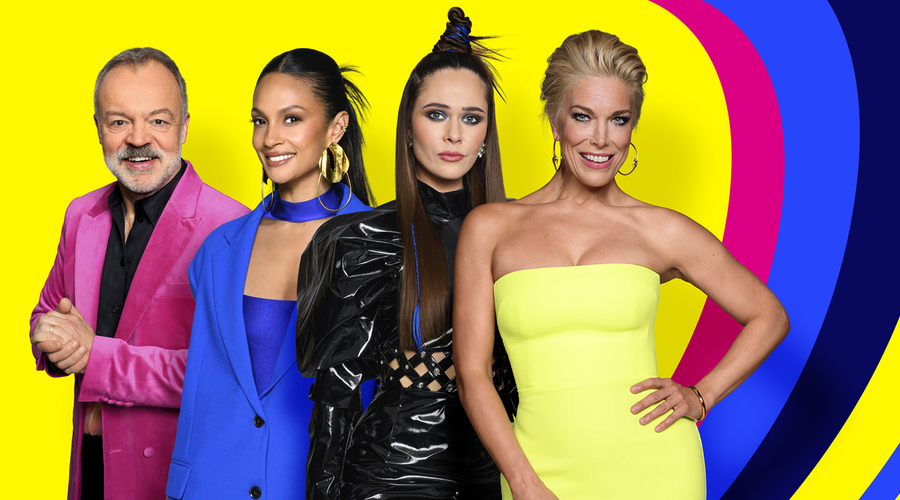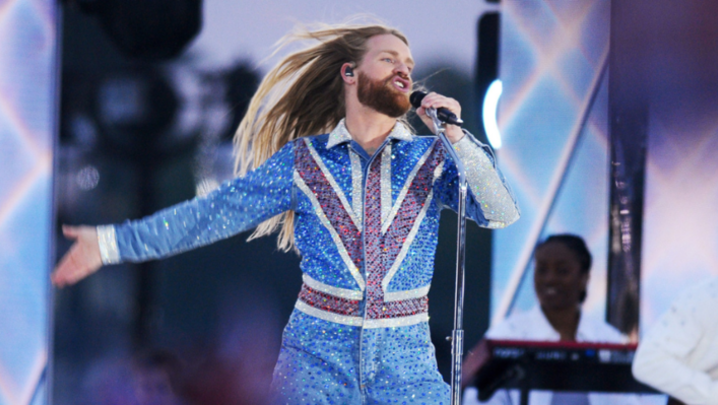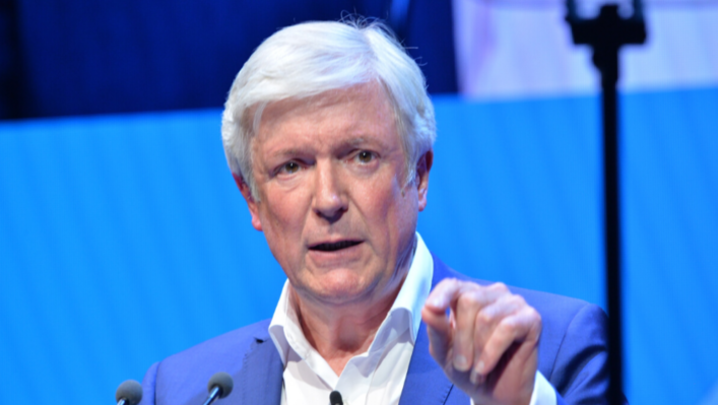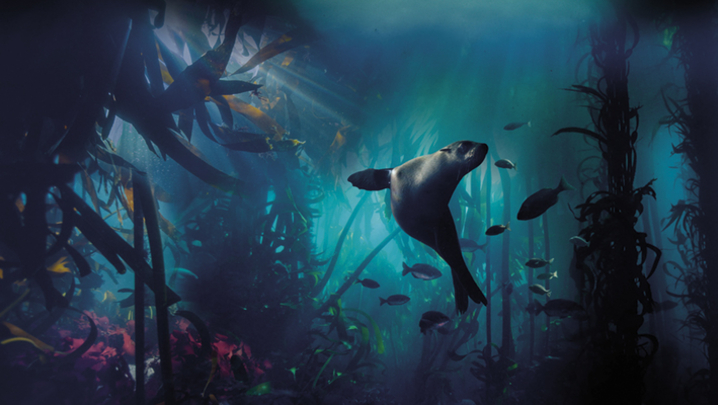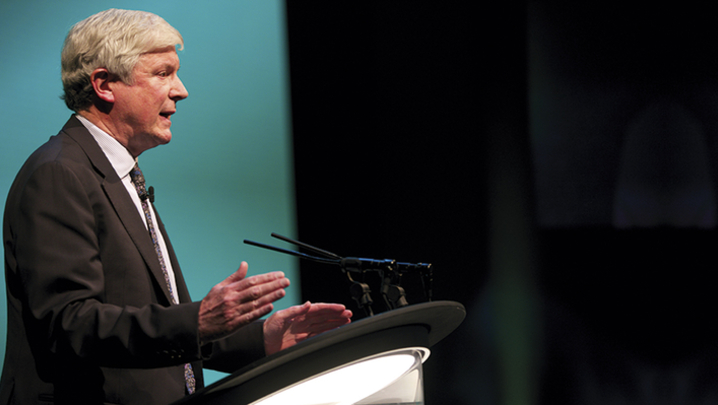The RTS learns how the BBC team behind Eurovision delivered a spectacular chart topper at Liverpool Arena
"Top that, Sweden!" joked Kate Phillips, challenging the hosts of next year’s Eurovision Song Contest. Just a few weeks earlier, a worldwide audience of 162 million – an all-time high – had watched Loreen win the contest for a second time.
Phillips, the BBC’s Director of Unscripted and Eurovision Lead, was talking at a packed RTS event that threw a spotlight on how the corporation staged the Europop jamboree at the Liverpool Arena in such spectacular fashion.
Of course, as the Turin 2022 winner, Ukraine should have been hosting the contest, but the European Broadcasting Union decided this would be impossible given the Russian invasion of the country. So, up stepped the UK (no wins since 1997), which had finished second with Space Man by Sam Ryder in 2022.
Phillips is a huge Eurovision fan and it had long been her ambition to put on the contest. “It was incredibly exciting for me but also daunting because there have been some wonderful Eurovisions. As the BBC, we want to ramp it up a notch and… deliver the best Eurovision.”
BBC Studios’ Lee Smithurst led the creative side of the three live television shows – two midweek semi-finals and the Saturday-night final on 13 May.
As the UK was hosting the contest on behalf of Ukraine, both countries were involved in the planning. “We always wanted it to be a celebration and the Ukrainians wanted the same thing,” said Smithurst.
Freckled Sky, a multimedia effects company, launched by Ukrainians in Chicago, worked on the contest, as did Ukrainian broadcasters and crew. The Kyiv-born singer Julia Sanina co-hosted the final, alongside Graham Norton, singer and TV presenter Alesha Dixon and actor Hannah Waddingham.
Best known for her role in Ted Lasso, Waddingham had never previously presented a TV show. She was an interesting choice (Smithurst was reluctant to take the credit, but it was his idea, Phillips revealed at the RTS event) and one that was fully vindicated.
Audiences loved her comedy noises, faces and dances, and were awestruck at her command of languages. “What you saw at Eurovision is exactly what she was like in her screen test – it was one of those no-brainers; you see the footage and you think: ‘She’s a star.’ She just lit up the screen,” said Smithurst.
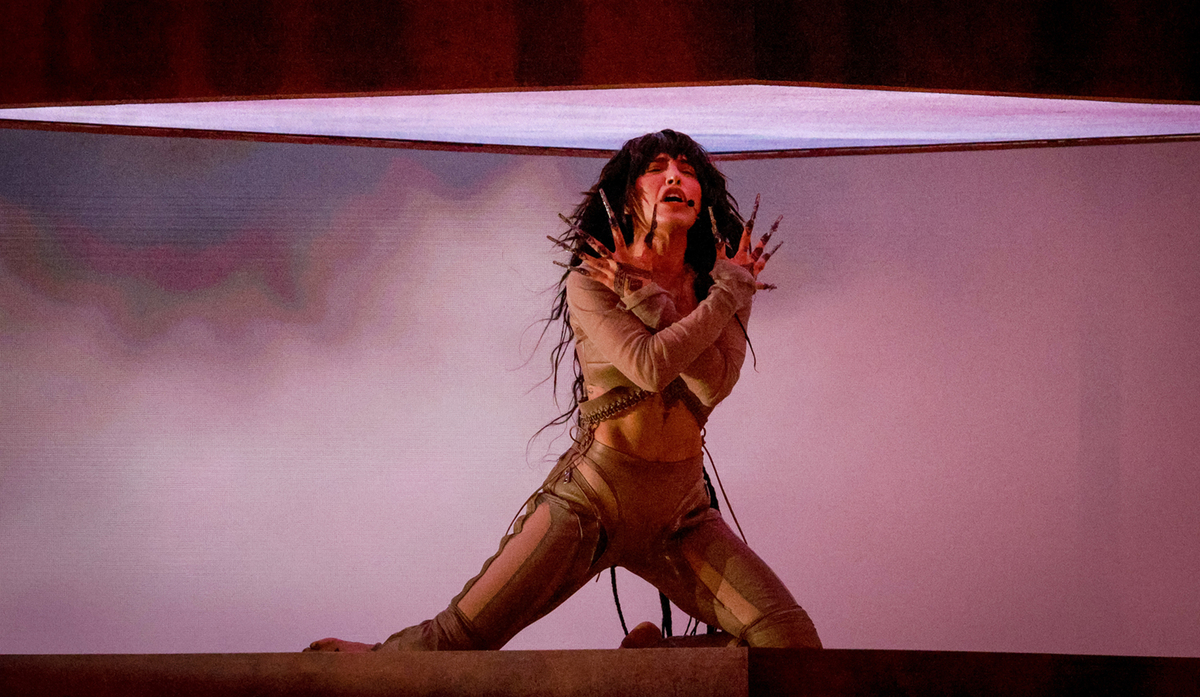
Although the show was made for a worldwide TV audience, the production had to follow BBC editorial guidelines.
“It was a really tricky balance – you don’t want to sanitise Eurovision because we all watch it for those bonkers moments,” said Phillips.
Memorably, Poland’s 2014 entry featured a woman dressed in traditional costume, performing simulated sex with a butter churner.
This year, it was the Croatian entry, performed by the satirical and provocative Let 3, that caused consternation, with the singers stripping down to their underpants and using nuclear missiles as props. It could have been worse, with Smithurst revealing: “In Croatia, they actually do go fully nude.” If they had won in Liverpool, that was exactly what Let 3 threatened to do.
Nikki Parsons (Strictly Come Dancing) was Eurovision lead director and had 30-plus cameras at her disposal “to bring the set to life. You want to get the atmosphere across at home… and the sense of occasion and excitement on the screen. If you were at the live show, what an atmosphere – it was incredible.”
But the pressure was huge. “We just had to keep going forward,” she said. “If you start thinking about how many people are watching and how much responsibility you have, you’ll never get it done. You just have to focus, maybe, on your mum watching at home.”
Bringing Eurovision to screen was a huge technical and logistical feat, involving almost 1,000 people and 10 months’ work. Many crew spent five weeks in Liverpool before the contest.
“Everyone wanted to work on Eurovision,” said event line producer Caroline Lloyd. “For me, it was the best show I’ve ever done. As well as being challenging, it was a lot of fun.”
Parsons added: “It’s something I’ve always wanted to do but never thought I’d do it. I loved every single minute of it – the collaboration with Ukraine, the city of Liverpool, the team that we had… it was my best experience in TV.”
Phillips, who is celebrating her 30th year in television, added: “It was the best working week of my life.”
Question & answer
How sustainable was the production?
Caroline Lloyd: Power was a key consideration… and the venue has a 100% renewable energy source. The rig, de-rig and all our back-of-house operations, which were really substantial, [such as] crew catering, media operations and hospitality, plus the outside broadcast compound, were run off [the arena’s] power.
But, for the show itself, because of its magnitude, with the screens, lights (which were LED), sound and set automation… we did use generators, but it was all HVO [fossil-free hydrotreated vegetable oil] fuel… We also had a pop-up HVO filling station for all our trucks… and all our crew were staying within walking distance of the venue.
What advice would you give next year’s host, Sweden?
Lee Smithurst: Martin Österdahl [Executive Supervisor of the contest, appointed by the European Broadcasting Union) gave us some advice. He said: ‘You should remember that time is not on your side and it never will be.’ At the beginning, you think you’ll be fine but [soon] realise that you’re constantly chasing your tail.
Did you have contingencies in place if things went wrong?
Lee Smithurst: We had various VTs that we’d made… of different lengths [to play in case of a problem live].
Nikki Parsons: In the dress rehearsals, we had to go to contingency [plans], but in the live shows it went so smoothly.
What would you have done differently?
Kate Phillips: I was really pleased with how it went… If Britain hosted it again… it would be a different show because we wouldn’t be hosting it for someone else. Having Ukraine gave us a narrative… we’d have to do that differently next time.
Report by Matthew Bell. ‘Eurovision 2023: meet the team behind the greatest show on earth’ was an RTS national event held in central London on 5 June. It was hosted by BBC One Morning Live presenter Sam Quek and produced by the BBC’s Harriet Humphries.

